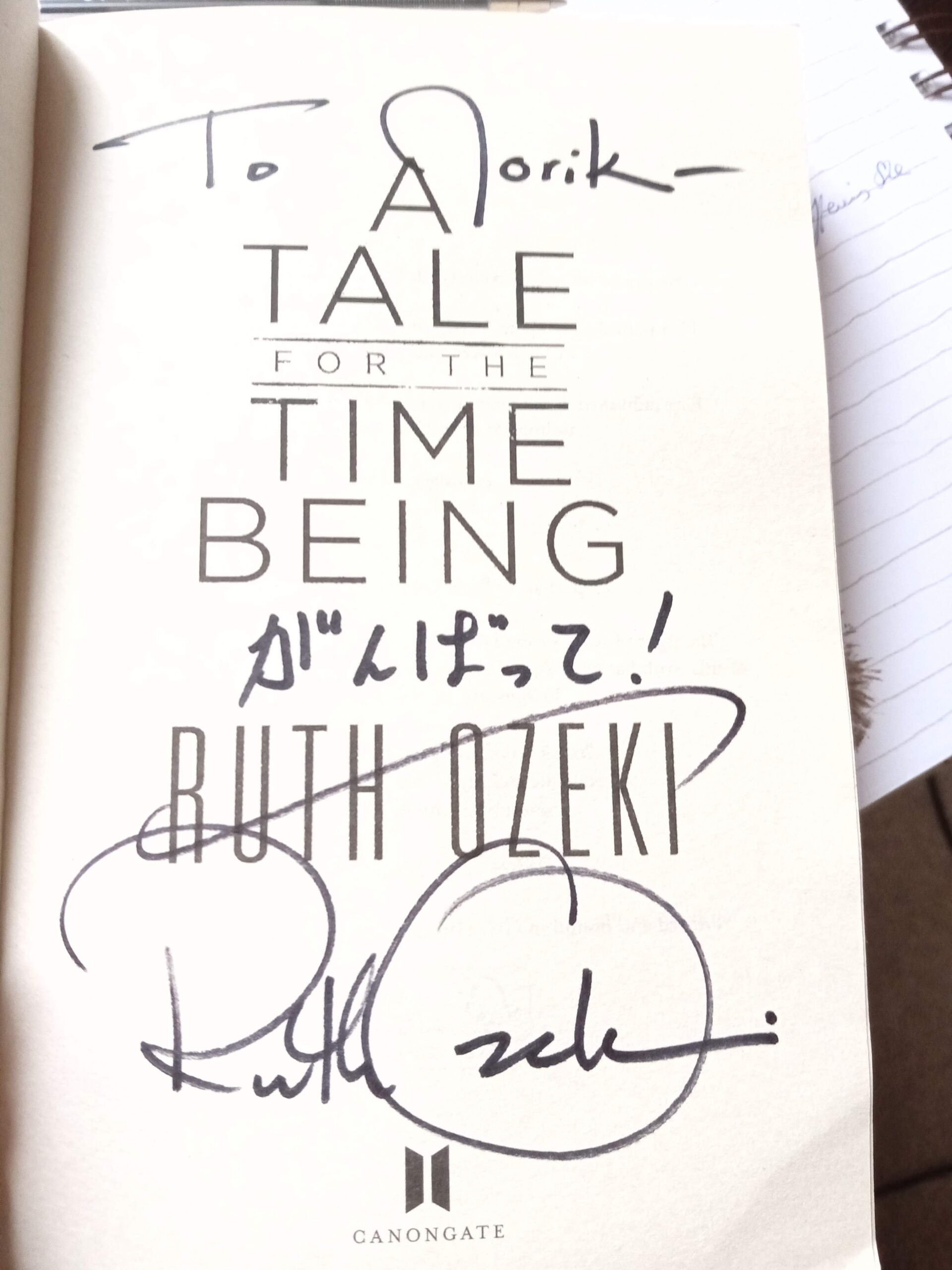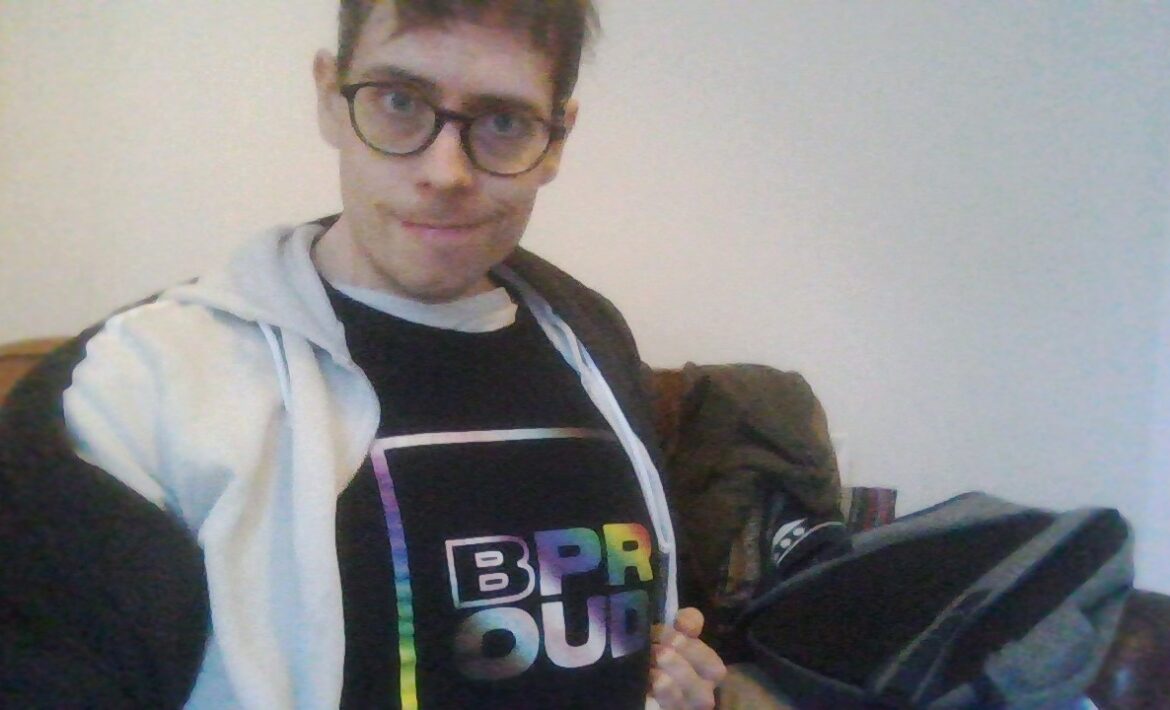
Monday 18th October 2021: Autistic At Work – Mentoring/Being a Freelancer
CW: discussions of suicide and mental illness.
Hi everyone,
I hope you’re doing great. There wasn’t a blog last week, due to me working for Autminds, a Dutch-language autistic-rights conference (they were all wonderful and I’m happy I was of use). I am trying to keep to what I promised myself previously. I need to rest when I need to. So if that means you won’t get a blog every week, then that’s what it is. I’m sorry about that. Instead I’ve smushed together two vaguely related blog ideas I’d been drafting previously.
This week was the proper start of my work as a mentor for autistic people in university. It’s still a bit new, especially in this more formal context. Even though all my mentees are as autistic as I am, I still was nervous. They’re new people, all the same and meeting new people is stressful, however you slice it.
Add to that two important job interviews and working with Autminds that weekend and I’ve really had my share of new people. In my time I’ve managed to fool some people into believing I’m an extrovert. It’s a mask and I can wear it. I love doing a good job and beat myself up over bad-to-middling ones, yet awful work and amazing work both need recuperation time. That’s true now and that’ll always be true, whether I accept it or not.
What inspired me to write this blog was a phone conversation I had the other day about doing more work as an autistic activist in my area. The person I spoke with wanted the young people they worked with to be exposed to a strong autistic role model. Apparently, she was referring to me.
Last week’s blog was supposed to be about mentoring and the idea that there have to be aspirational autistic figures who, against the odds, have managed to be successful in a system that will never appreciate them. It’s like Cheryl Sandberg’s Lean In. If you’re a marginalised person in a position where you’re outnumbered, you’re supposed to pretend that any problems you face are just a result of you not doing well enough. The onus is on you to change. It’s your responsibility to just cope and face all the issues that exist when you’re an autistic person in a neurotypical world.
It’s why the idea of being an ‘inspirational figure’ makes me feel nauseous. I’m not an example to anyone. I can only do what I do because I’ve been there and done that. I’ve just had so much time trying and failing to exist in a world that doesn’t want me. I’ve been fighting the system for ages and I lived to tell the tale. Not all of us do.
I spoke to my friend Ivana recently, for her website. She interviewed me about my sense of home. It was a personal one, I’ll link to it when she is able to release it. But the thing that autistic people and refugees have in common is that we are never ‘home’ in the neurotypical sense. Instead, we are permanently in a state of flux.
If you’ve been following this blog for a while, you know about my struggles with employment. As you then also know, that struggle is not unique to me whatsoever.
The other day, my partner and I were walking home and I said that I’ve actually managed to do the impossible: I have a career now. That sounds stupid, everyone has a career! It’s just your job, right? Moreover, it’s not healthy to define yourself on the basis of what you do for a living. Right? Right?
Right. But it really isn’t that simple, especially for autistic people. I didn’t properly enter the world of work till I was nearly 30, due to various mental health delays. Autistic people who struggle getting into work are the rule, very much not the exception.
Then, why did I turn to self-employment? Because I could. I struggle with the constant need to present in a way acceptable to neurotypicals. Worse, they are not even aware of their own bigotry towards our specific and divergent type of personhood.
The very way that employment is structured nowadays excludes autistic and ND people. Nowhere is this so apparent as in job hunting. In education, we are led to believe that the current system is a meritocratic one. It isn’t. Not even in education is this the case, many of us don’t even get to leave education with any formal qualification. But for the ones that do: congratulations, you have been privileged enough to manage at least a little. Once we leave education with a variety of skills and talents – mostly, the ones that have allowed us to survive education itself – we then try to look for work. This is where most of us fall, and fall hard.
The very systems that make up modern HR and hiring practices are exclusive. It relies on the gut feeling of (practically 100% neurotypical) HR professionals putting a range of hurdles in your way that all rely on a variety of masking techniques and performance skills that have nothing to do with the actual work. These systems have become increasingly arcane and exclusive, on top of requiring the applicant to be of a far higher skills level than actually advertised. This is because of the disconnect between the hiring arm of the business and the actual day-to-day working environment. It is a system built to find the highest skill level of person they can get away with paying the least. Plus they have to be straight, white, male, cis, neurotypical, able-bodied, middle to upper-middle class and be called Toby. Or if that is not intentional, the outcomes certainly look like they are.
My partner is a web developer and he’s applying for jobs right now. Despite his skills and experience, he’s finding that businesses simply don’t respond to applications, closed or open. No-one does their homework. Ever. He’s now seriously considering going freelance, as steady employment is simply not working. He cannot rely on companies to do their job, let alone send a courtesy email to tell him they’ve rejected him.
The system as it stands is excluding us. It’s not a bug, it’s a feature. That’s why the employment rates are so deplorable. It’s not by accident. We are weeded out before we get a chance.
I tell my mentees that too, because they still feel the need to prove themselves and to be ‘good enough’ to override systemic discrimination. That makes me sad on quite a deep level, because I can still feel exactly the same.
The ways to solve this do not lie with autistics, but instead with the systems that have grown increasingly wary of us. I don’t want to go back to a time ‘before’ when autistics were not as discriminated against at the door. Because the discrimination happened either way. We would get jobs and then be fired from them if we did not behave in exactly the way we were expected to. The only thing that is worth bringing back is a coherent social safety net.
That’s also the main takeaway to employers: your system is broken. We need a system of universal basic (liveable) income and higher taxes on the wealthy. Then we need to institute a complete rethink of what human resource management is and does. In the meantime, we are being punished by the state for not being allowed to work. It is now both our fault that we can’t pass job interviews that are made to exclude us whilst also not qualifying for sufficient income support through benefits. Fix that. You have power to make change. Do so.
To autistics themselves, my biggest piece of advice is to never allow yourself to be dependent on one job or agency, because they are not in this for you and will drop you when the can. It starts at the door. People never respond to your emails or calls – even letters of application! This may be particular to Britain, but in every industry I’ve worked in, human beings in this country both expect nothing less than administrative perfection from you while never even bothering to respond to what you send them. This discrepancy is really frustrating if you operate on an idea that communication is reciprocal. It isn’t. NTs think it is, but it isn’t. They have all the power in hand. I found what works for me is to never emotionally invest in one job or group of people for my income, because they simply might drop off the radar despite promising the opposite.
There is a difference here, though: autistic people may struggle with executive function and simply not respond to emails because it’s too much for them to cope with. That’s ok and doesn’t feel awful in the same way as NTs do. This is another reason I make sure I have lots of things going on at the same time, since most will probably not happen at all.
I would like to remind you all that I’ve only spoken about one aspect of autistic life and only in the context of hiring. I could write volumes about all of the inequalities that exist. Yet in a capitalist society, work is supposed to be the one thing that saves us from penury. When we are denied that opportunity, in the absence of an income support system, we are left with nothing. It is life-or-death. And the people currently benefiting from that system need to change it, not us. We tried. It was never good enough for you. That’s one of the reasons why autistic people’s quality of life and even life expectancy are so low – inequality without any explanation and the inevitable self-blame that results from that.
In conclusion: I feel uncomfortable being an autistic role model, because it underlines my survival against the odds as something unique to me, detached from the thousands of others who do not make it to my age. It’s more important for neurotypicals to recognise their own privileges than it is for autistics to have someone to look up to. We don’t need positive stories, we need change. It’s privileged groups who need to do more than give us lip service. If they’re so concerned about our quality of life, it’s up to them to stop making our lives worse. They should employ us and actually confront the fact they’re only where they are because they are above us in the social hierarchy. The fact they don’t like to recognise it as such is indicative of that very privilege. We need autistic people providing autistic services, across the board.
がんばって!
The last bit of this blog is about keeping on keeping on. 2 weeks ago, My partner and I went to see Ruth Ozeki speak at Mr. B’s Emporium in Bath. Mr. B’s is one of the wonderful bookshops here in town and I adore it. She was speaking about her new book The Book of Form and Emptiness. As there weren’t that many questions, I asked her about how she made a living, having 8 years between this book and her last one. She said she lives very frugally – wise – and that she’s only ever been self-employed before being given a tenured teaching post at a university recently. Afterwards, we went to get our hardback copy signed, as well as my paperback version of her previous novel A Tale for the Time Being. My partner also said he wrote. She wrote him some excellent moral support. For me, since I asked (in Japanese) if she wrote in the language, she wrote Ganbatte! – Japanese for ‘keep going’. I shall. As AL Kennedy wrote in her much-missed blog about writing: ‘onwards’.
Apologies if this one was a bit messy, I’m just about to start a mentoring session and on Sunday I had a 6 hour interview with a researcher for their PhD, about work. I hope I’m making at least a little bit of sense here. Lots of love, see you next week!
Jorik



We like messy. 😉